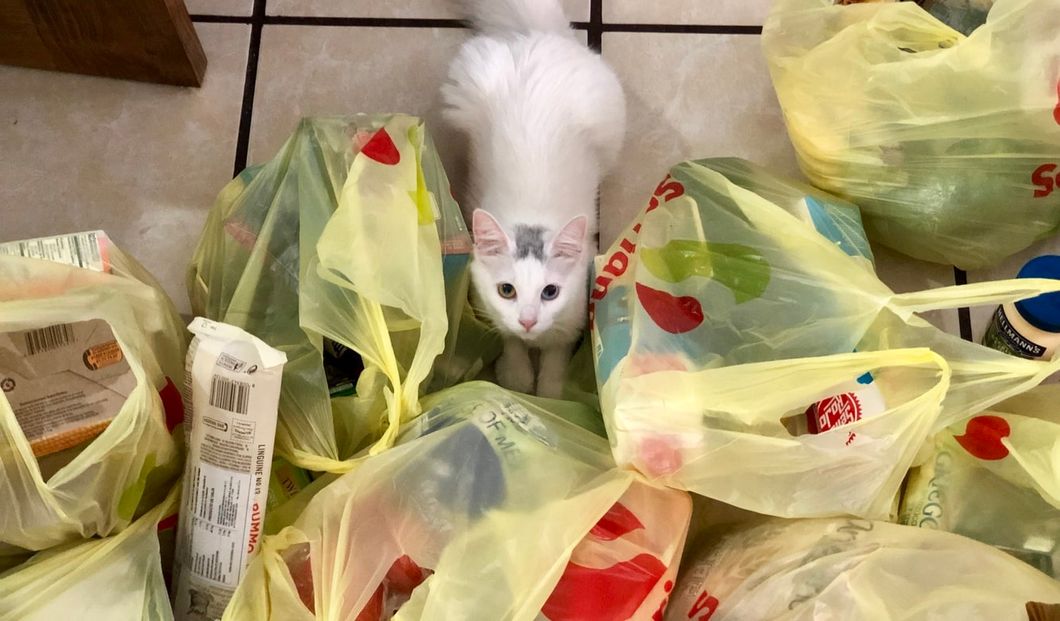Americans annually discard over 100 BILLION single-use plastic bags, and their environmental impact is alarming. They are made using non-renewable resources such as natural gas or petroleum. At recycling plants, they can get tangled in the machinery and can cause great damage. In landfills, they contribute to toxic emissions when burned in incinerators, but never completely break down. More often, instead of ending up at either of these places, they are littered onto roadways, sidewalks, parks, oceans, lakes, rivers, etc., harming wildlife and ecosystems. They can block drainage systems, and leak toxic chemicals into sources of drinking water. Thirteen million tons of plastic enter our oceans every year. Yet, efforts to implement plastic bag bans are being met with great pushback, with many arguments claiming that they would not be effective.
Some argue that paper bags are not any better for the environment than plastic bags. This statement has its merits, as use of paper does require a great deal of water and fertilizer to grow trees. However, paper bags made from recycled paper use far fewer resources. Paper bags are also much more recyclable than plastic bags, and release fewer toxins into the environment through both their manufacturing and break-down. Finally, the intent of plastic bag bans is not to encourage the use of paper bags: plastic bans are usually accompanied by a tax on paper bags, incentivizing people to use reusable bags instead.
Even if reusable backs take more resources to manufacture than plastic bags, their long-term repeated use eventually, over time, reduces their carbon footprint to be much less than that of a plastic bag's. The average family will only need a few reusable bags, compared to the hundreds of plastic bags they will use and discard into the environment, polluting it, over time. When this effort is duplicated by millions of American families, the resulting benefit on the environment will be astounding. The economy can also benefit: a boost in the reusable tote bag industry will create many new jobs.
Currently, eight states -- California, Connecticut, Delaware, Hawaii, Maine, New York, Oregon and Vermont -- have implemented plastic bag bans. Notable cities with plastic bag bans are Boston, Chicago, Los Angeles, San Francisco, and Seattle. The movement is already underway, but there is still a long way to go. Plastic pollution is a dangerous issue that is threatening the health of ecosystems all around the world. However, it is also one of the few environmental issues today that can realistically be addressed by small-scale, individual actions. Switching to reusable bags is a simple change that most families can accomplish. The only aspect of the plastic ban revolution that we are lacking is awareness and accountability.
Yes, YOU are contributing to the issue.
But, YOU can also be part of the solution.











